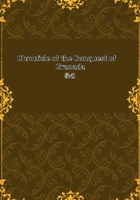
第47章
A stately convention was held by King Ferdinand in the ancient city of Cordova, composed of several of the most reverend prelates and renowned cavaliers of the kingdom, to determine upon the fate of the unfortunate Boabdil.
Don Alonso de Cardenas, the worthy master of Santiago, was one of the first who gave his counsel. He was a pious and zealous knight, rigid in his devotion to the faith, and his holy zeal had been inflamed to peculiar vehemence since his disastrous crusade among the mountains of Malaga. He inveighed with ardor against any compromise or compact with the infidels: the object of this war, he observed, was not the subjection of the Moors, but their utter expulsion from the land, so that there might no longer remain a single stain of Mahometanism throughout Christian Spain. He gave it as his opinion, therefore, that the captive king ought not to be set at liberty.
Roderigo Ponce de Leon, marques of Cadiz, on the contrary, spoke warmly for the release of Boabdil. He pronounced it a measure of sound policy, even if done without conditions. It would tend to keep up the civil war in Granada, which was as a fire consuming the entrails of the enemy, and effecting more for the interests of Spain, without expense, than all the conquests of its arms.
The grand cardinal of Spain, Don Pedro Gonzalez de Mendoza, coincided in opinion with the marques of Cadiz. Nay (added that pious prelate and politic statesman), it would be sound wisdom to furnish the Moor with men and money and all other necessaries to promote the civil war in Granada: by this means would be produced great benefit to the service of God, since we are assured by his infallible word that "a kingdom divided against itself cannot stand."*
*Salazar, Cronica del Gran Cardinal, p. 188.
Ferdinand weighed these counsels in his mind, but was slow in coming to a decision: he was religiously attentive to his own interests (observes Fray Antonio Agapida), knowing himself to be but an instrument of Providence in this holy war, and that, therefore, in consulting his own advantage he was promoting the interests of the faith. The opinion of Queen Isabella relieved him from his perplexity. That high-minded princess was zealous for the promotion of the faith, but not for the extermination of the infidels. The Moorish kings had held their thrones as vassals to her progenitors: she was content at present to accord the same privilege, and that the royal prisoner should be liberated on condition of becoming a vassal to the Crown. By this means might be effected the deliverance of many Christian captives who were languishing in Moorish chains.